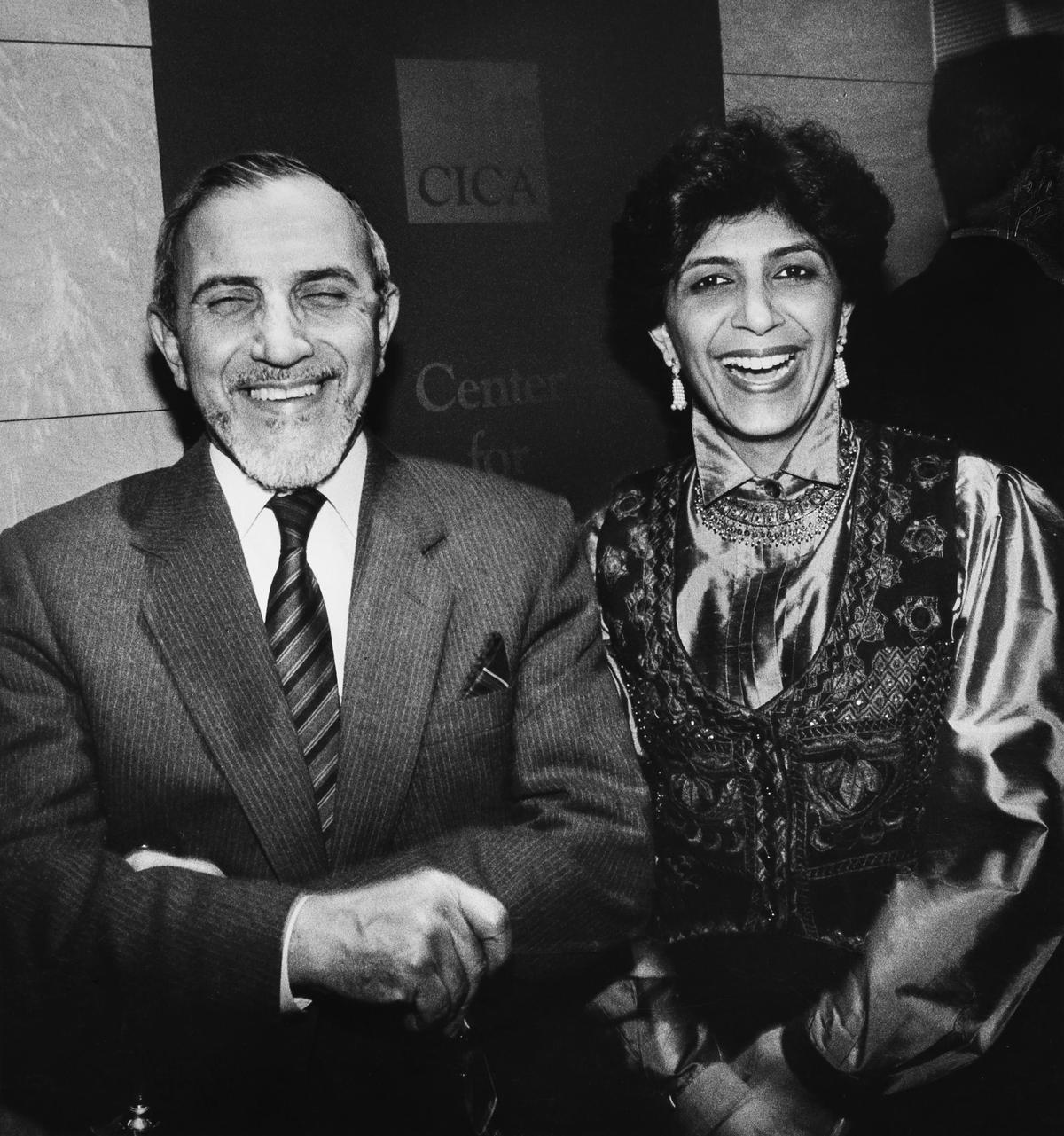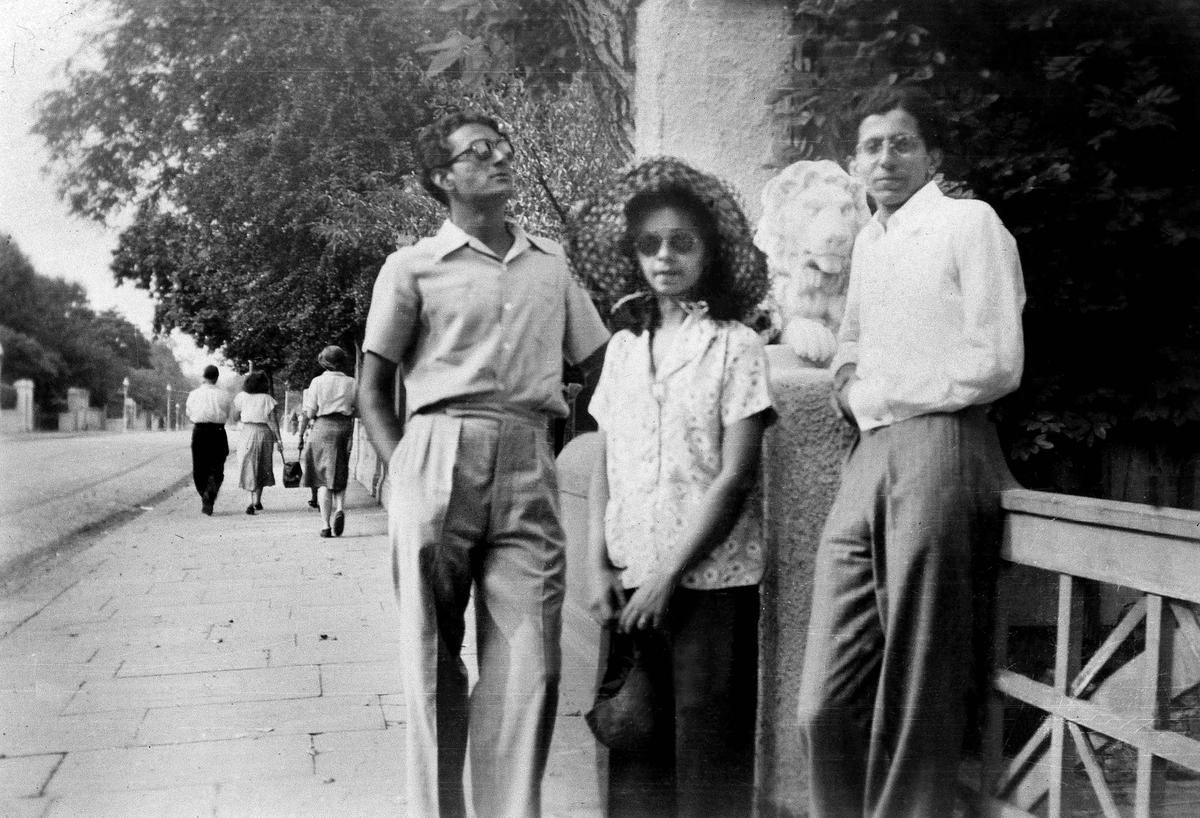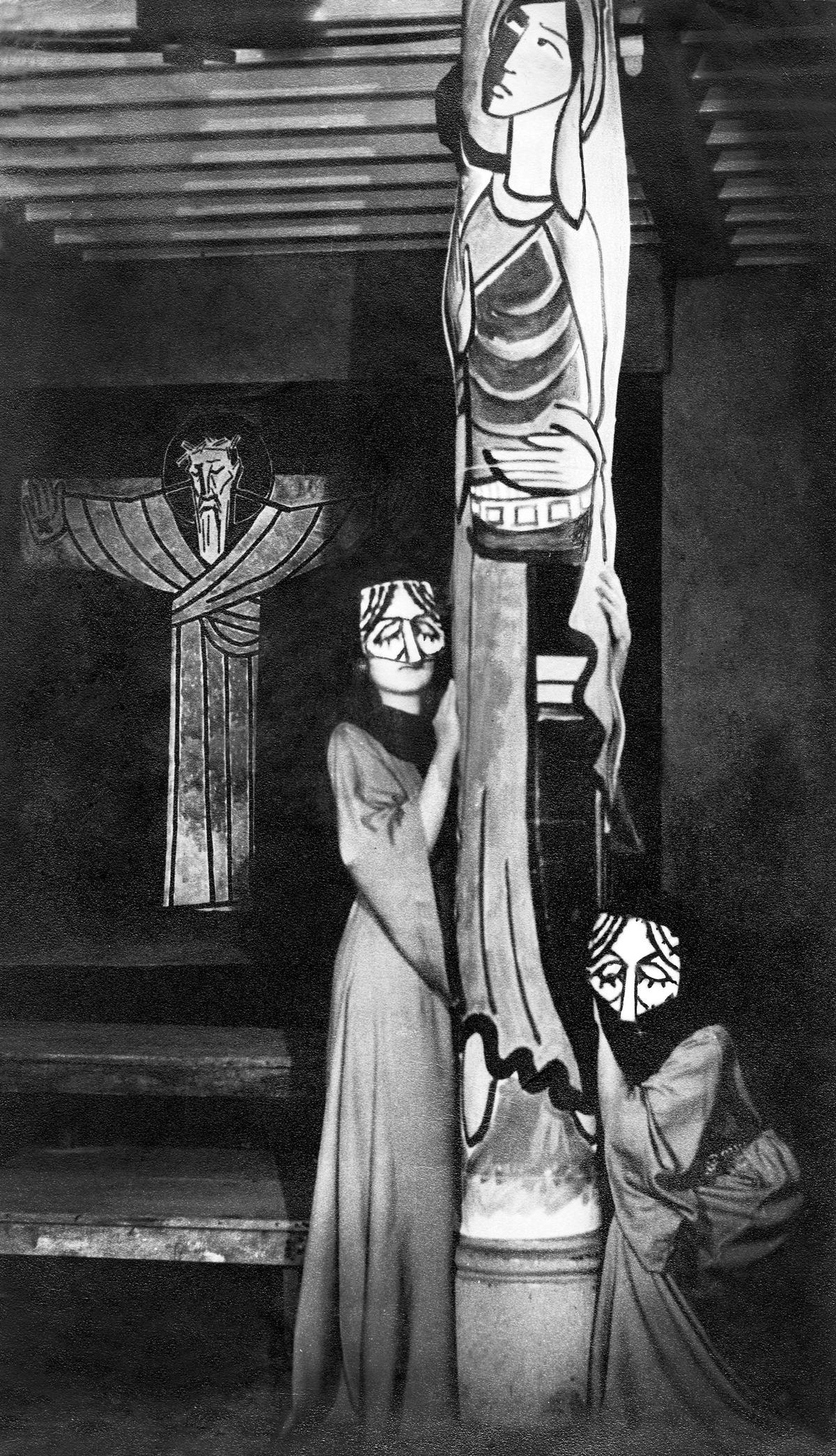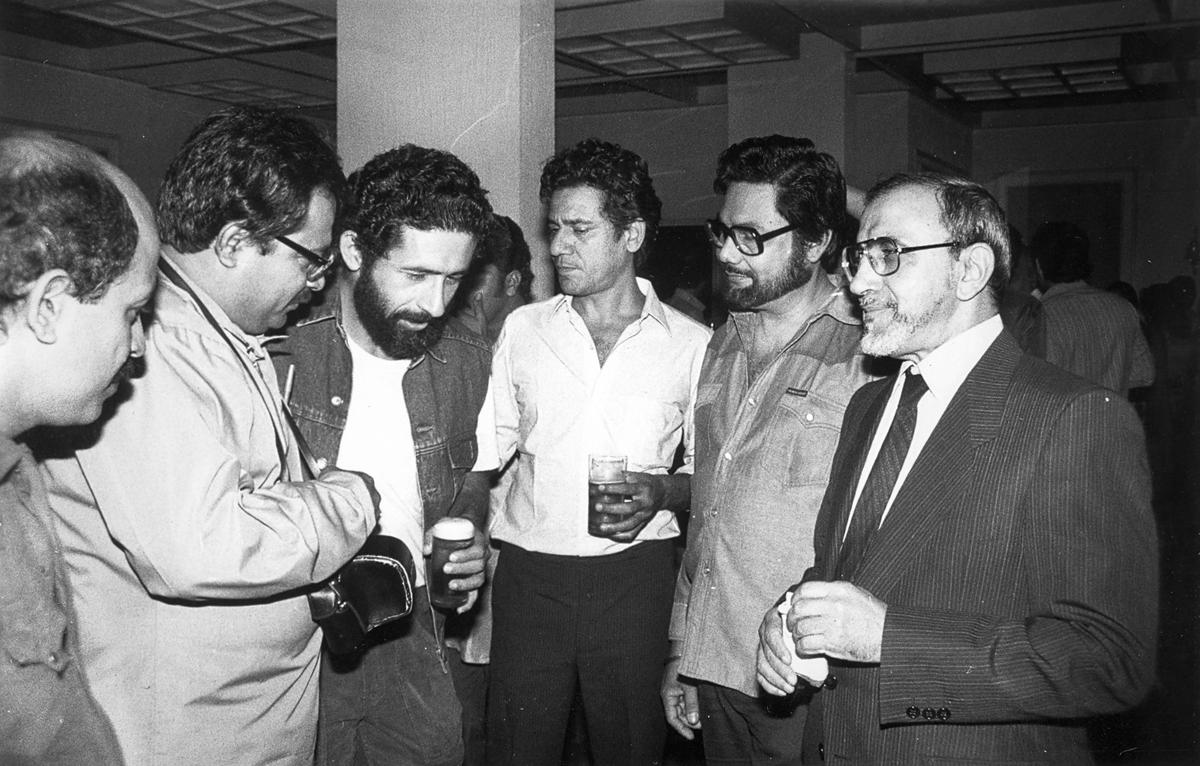The traces between private {and professional} blur, have interaction and intertwine at each flip of the web page in Amal Allana’s biographical novel Ebrahim Alkazi: Holding Time Captive, which traces the quintessential id of the daddy of contemporary Indian theatre . “You may’t speak of my father on a private stage alone, as a result of his work was an intrinsic a part of his life,” says Amal, who took almost 10 years to give you the e book that finds its roots in a 2016 exhibition titled The Theatre of E. Alkazi.
“I by no means fairly began out to put in writing a e book as I had by no means written one earlier than; all of it started with the exhibition,” she shares, touring our thoughts by way of a copious assortment of Alkazi’s images and artworks present in a tin trunk, which she chronicled to chart the trajectory of her father’s works. Earlier than making their approach into the e book, these contents have been displayed at yet one more exhibition, The Different Line (2019), showcasing over 100 drawings and work of the theatre doyen only a 12 months earlier than he died on August 4, 2020.
Lovers II, drawing by E. Alkazi, 1950
| Photograph Credit score:
Courtesy: The Alkazi Assortment of Artwork
“We have been in New York in 1999, when my father agreed to my request of interviewing him. We put up a static digicam and I began asking him questions. Wanting again, I might have requested him many extra questions, which I later by no means obtained the chance to,” says Amal, justifying the dialogues that run parallel to the narration of occasions that contributed to the making of Ebrahim Alkazi. She attributes the conversations cited within the e book to lots of Ebrahim’s buddies — thespians, writers, critics and members of the Progressive Artists’ Group — and his spouse Roshen Padamsee. “I spoke with them too. The e book just isn’t the telling of a story, I’m making it alive, I’m making scenes. I’m a theatre director and I’ve an instinctive feeling to transform the whole lot right into a play or a scene. That was the most effective half about scripting this e book; it was like I used to be writing a protracted play,” she says describing the e book’s literary type.

Ebrahim with Amal Allana.
| Photograph Credit score:
Particular Association
Amal inherits her love for theatre from her father, additionally his curiosity in varied artistic mediums of artwork. She was the chairperson of the nation’s premier theatre academic institute Nationwide Faculty of Drama (NSD), which was based in 1959 and Alkazi was invited to move it in 1962. She additionally based Dramatic Artwork and Design Academy (DADA) in Delhi, with husband Nissar Allana, in 2000. Amal additionally runs an Artwork Heritage Gallery. “I draw from him the entire self-discipline of theatre, theatre as a part of many artwork types, the thought of drawing from world traditions (and never simply India) and of being inclusive,” she says. The author in her emphasises on the final little bit of the above-mentioned quote — she fervently unfolds the layers of Alkazi’s cultural, nationalistic and creative id, ranging from his roots in Bombay because the son of a migrant from Saudi Arabia.

Roshen with Nissim Ezekiel and Baloo in London, 1949
Courtesy: Alkazi Private Archives
| Photograph Credit score:
Alkazi Private Archives
“Even if Alkazi was not an Indian by parentage, his sense of belonging to India solely intensified over time. His dad and mom left for Karachi after Partition, however he remained in India. Additionally, I used to be named Uma; there was no query of Hindu and Muslim. My mom wore a bindi. You couldn’t inform that she is a Muslim or Khoja — these have been completely different days, we grew up in a society, a household the place there have been no variations. My father’s buddies have been Catholics, Muslims, and Hindus, nobody was anybody’s faith. We’ve to grasp that as Indians we come from a wealthy previous and the richness comes from it being syncretic,” she explains, including that the e book means to reveal the youthful technology to the truth that there was one other lifestyle.
Love for literature
The e book evolves with extra nuanced citations of Alkazi’s creative and tutorial endeavours, constructing on his youthful days — his love for literature, craving for an Indian id which stands validated by a Parsi man whereas attending Gandhi’s Stop India rally, and his initiation into the world of theatre after assembly Sultan Padamsee (whose sister he later married). After Sultan’s dying, he leaves for London to review artwork however finally ends up enrolling for theatre at Royal Academy of Dramatic Artwork solely to return to India later. “Alkazi, being the person of his time, was imbibing the artwork traits of ’40s, like Gesamptkunstwerks, the place many artwork mediums reminiscent of poetry, portray, writing and theatre have been being mixed to make one complete, built-in piece of artwork. You had Picasso and Henri Matisse designing theatre units. So, when Alkazi got here again to India, he invited M. F. Husain to design the set of his first play Homicide within the Cathedral. Then artists like Vasudeo S. Gaitonde and Akbar Padamsee designed units for him too,” she provides.

Homicide within the Cathedral by T. S. Eliot, dir. E. Alkazi, set design by M.F Husain, Theatre Group, Bombay, 1953
Courtesy: Alkazi Theatre Archives
| Photograph Credit score:
Alkazi Theatre Archives
Amal’s e book tenders another attention-grabbing facet of Alkazi’s disposition — of taking individuals together with him. He not solely obtained his father to sponsor Nissim Ezekiel’s journey to London, but in addition had FN Souza for a flatmate at his lodging at 38, Lansdowne Crescent. “He was at all times inviting artists from completely different fields to collaborate with him. This led him to conceive built-in theatre programs that included a research of dance, mime, literature and the visible arts in his Bombay years. Later, these concepts have been developed to create a extra detailed syllabus for a three-year course in theatre research at NSD. He was additionally eager on housing the institute in Rabindra Bhawan, to share the area with Sangeet Natak Akademi, Sahitya Akademi and the Lalit Kala Akademi,” says Amal.

Alkazi with former NSD college students, together with Naseeruddin Shah and Om Puri, at a reception in his honour in Bombay
Courtesy: Nadira and Raj Babbar
| Photograph Credit score:
Nadira and Raj Babbar
Alkazi resigned from NSD on Might 11, 1977. In her e book, Amal states: “It was not the virulent critics, not theatre individuals, nor his personal beloved college students who prompted him to take the ultimate step. It was his realisation that the pettiness of these in energy couldn’t discover it in themselves to help his model of futuristic schemes. Tremendously pained that this, in reality, was the brand new harsh actuality, he mentioned of a moribund forms: There’s a lot that our commissars of tradition within the final 20 years should reply for, and historical past just isn’t going to allow them to off flippantly. They’ve vitiated the nationwide cultural scene with their pettiness and paranoia; their very own embittered frustration; their sickening hysteria. They’ve crammed the akademis and different cultural our bodies of the federal government with incompetent, servile functionaries; they’ve decreased them to dismal, arid, fetid charnel homes of tradition…”
Rendezvous with Amal
Literature Stay! and Penguin Random Home India, in affiliation with The Royal Opera Home, Mumbai and Avid Studying have introduced the Mumbai launch of Ebrahim Alkazi: Holding Time Captive by Amal Allana. After the e book launch, the creator shall be in a riveting dialog with poet, curator, and cultural theorist Ranjit Hoskote, unraveling the multifaceted affect of one of many giants of twentieth-century theatre and a key promoter of the visible arts motion in India. The night shall be elevated by the distinguished presence of filmmaker Shyam Benegal because the chief visitor, accompanied by enthralling readings from singer-composer Sonam Kalra and director and actor Rehaan Engineer.
The place: Royal Opera Home, Mumbai
When: Wednesday, April 17 | 6.30pm to 8pm
RSVP: www.avidlearning.in
Amal believes that the shortage of monetary help to Indian theatre has eclipsed its reputation, which isn’t a lot the case with different artwork types. “What’s worrying in the meanwhile within the artwork world is that the risk doesn’t solely come from political pondering on free expression. It additionally comes from the truth that artwork has during the last decade turn out to be a commodity, an funding, the place the market defines what is nice or trendy artwork. It’s the other in theatre. Nobody earns from theatre. But, one hears of sporadic incidents the place sure performs have been censored,” she says, whereas reflecting on the character of artwork content material.

Poster of Hamlet by Shakespeare, dir. E. Alkazi; Alkazi as Hamlet, Theatre Group, Bombay, 1947
Courtesy: Alkazi Theatre Archives
| Photograph Credit score:
Alkazi Theatre Archives
She is pushed again to the post-World Warfare II period when artists in Germany went underground. “When somebody tries to stifle you, you discover new methods of expression. It births innovation which may spur a brand new motion. In theatre too there are such a lot of new performs, by small teams, like those we noticed on the not too long ago held Mahindra Excellence in Theatre Awards. We want extra such individuals and after all the federal government to help theatre, which is an costly exercise. We’re a bit just like the farmers,” she feels, and means that the federal government should subsidise theatre. “We’ve plenty of expertise in our nation, and so many points to speak about and focus on. Theatre is the proper medium for these conversations,” says Amal Allana.





